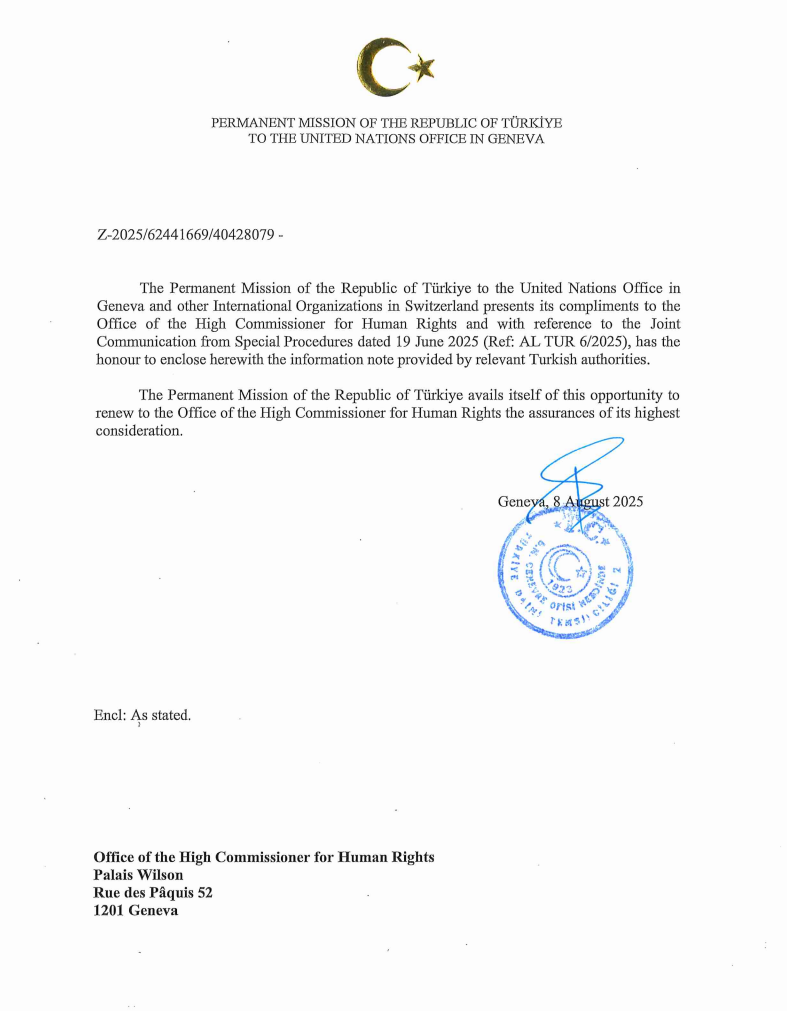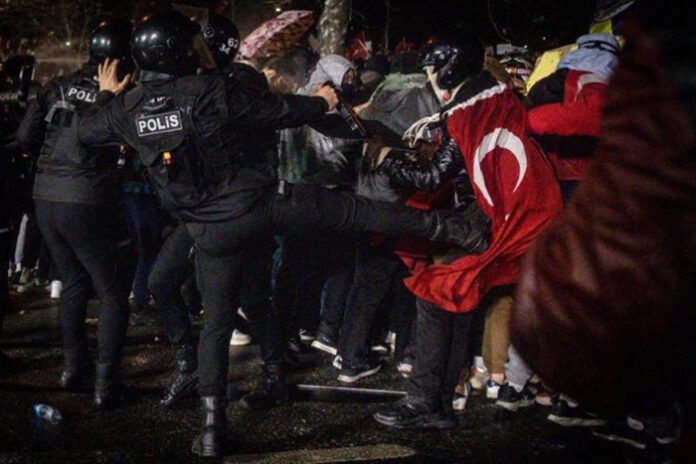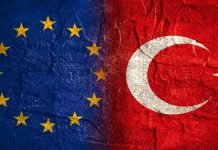United Nations special rapporteurs expressed serious concerns regarding allegations of disproportionate use of force and torture by Turkish police during demonstrations in March protesting the arrest of Ekrem İmamoğlu, mayor of İstanbul.
In a letter dated June 19, published after the Turkish government’s August 8 response, the UN special rapporteurs warned that the alleged acts of law enforcement officials, both during the demonstrations and against detained protestors, “could amount to violations of the absolute prohibition of torture and other cruel, inhuman or degrading treatment or punishment.”
The letter was signed by eight special rapporteurs, including experts on torture, arbitrary detention, freedom of expression and assembly, human rights defenders and counterterrorism.
The rapporteurs highlighted a pattern of abusive use of force by law enforcement officials that is in conflict with the prohibition on torture and other forms of ill-treatment. Reported practices included severe beatings with batons, kicking and punching, the spraying of chemical agents aimed at the eyes and the direct firing of plastic capsules at protestors’ bodies. Use of high-pressure water-cannons known as “TOMA” at close range, in ways that endangered physical integrity, was also in the list.
İmamoğlu, considered to be the strongest political rival of President Recep Tayyip Erdoğan, was arrested on March 23 following a major police operation targeting him and dozens of İstanbul city officials on March 19. His detention sparked widespread protests — the largest in Turkey since 2013.
During the demonstrations nearly 2,000 people, including teenagers, students, lawyers, journalists, union leaders and human rights defenders, were detained nationwide. Approximately 300 individuals were arrested.
The UN rapporteurs also cited multiple reports indicating injuries targeting the head and face, torture or other ill-treatment at various stages, threats, insults, gender-based slurs and sexual violence against women, inadequate provision of medical care for those in need, detention for up to four days without access to lawyers and restrictions on access to online information.
The rapporteurs called on the Turkish government to promptly investigate these allegations, release individuals arbitrarily deprived of their liberty and ensure adequate medical care for detainees in need.
In its response, dated August 8, the Turkish government invoked legal provisions on national security and public order, declaring the demonstrations “unlawful” solely because no prior notification had been submitted.

Although Article 34 of the Turkish Constitution recognizes the right to hold demonstrations without prior permission, Article 10 of Law No. 2911 on Meetings and Demonstrations requires that the organizers notify the authorities of the location 48 hours in advance. This notification requirement, however, has been criticized for effectively functioning as a system of mandatory permission.
A joint 2024 report by the Human Rights Association (İHD) and the Human Rights Foundation of Turkey (TİHV) identified such prohibition decisions as one of the most significant obstacles to the exercise of the right to peaceful assembly and demonstration.
The Turkish government further asserted that “allegations of violations committed by law enforcement officers are immediately brought to the attention of the relevant authorities and duly investigated.” Yet, it offered no information regarding any disciplinary or prosecutorial action against officers potentially responsible, disregarding the request of the rapporteurs. The note also argued that “tear gas and other related equipment are used also in other countries,” without addressing their excessive and dangerous use in ways that violate international standards.















